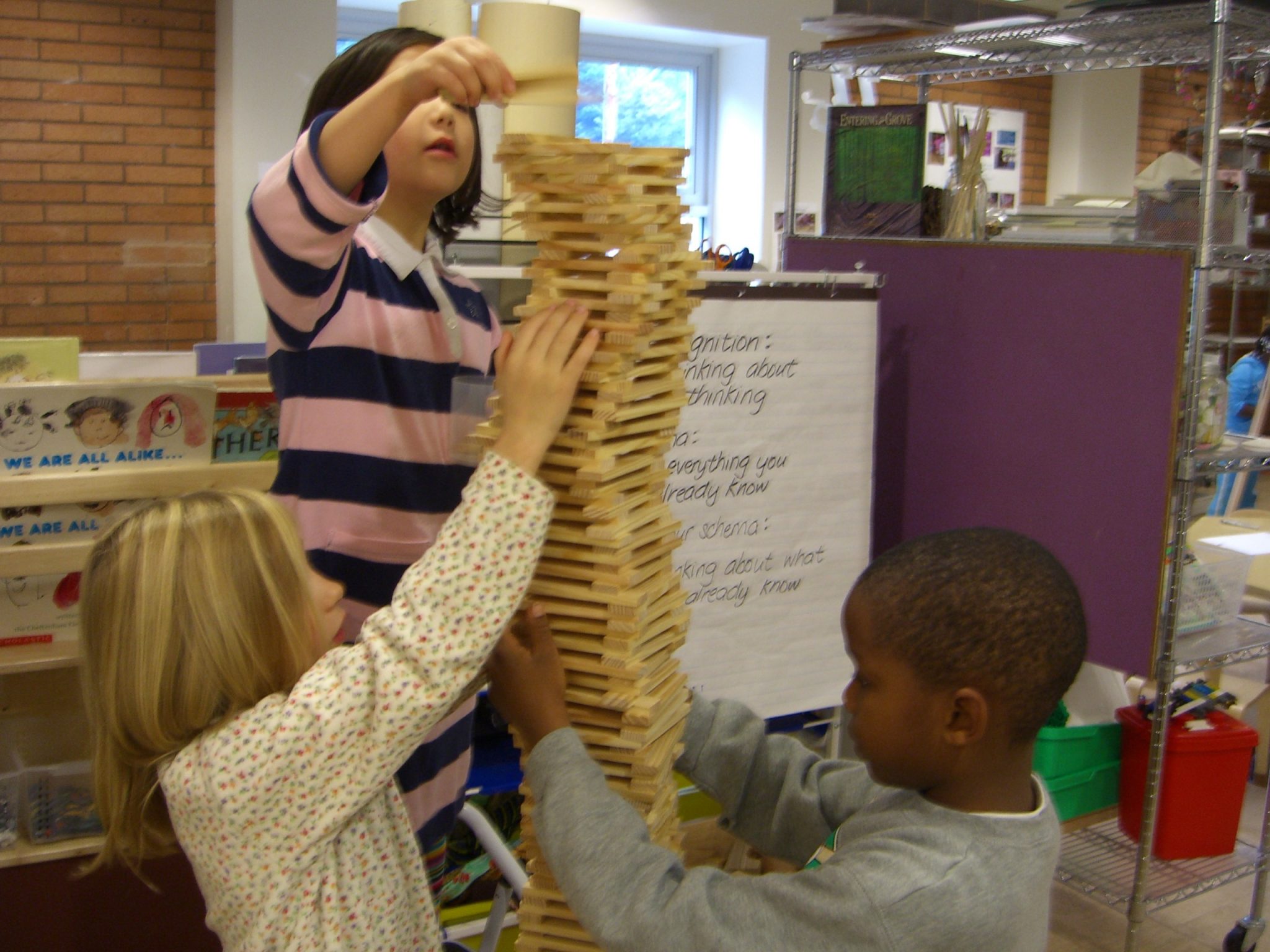Cognition

Observing, listening, asking questions, and documenting student growth and learning is all a part of what we do as teachers every day at Opal School. As we document the growth and learning of the children in our classroom, of course we pay attention to the academic skills that they are acquiring, but we look for more than just those skills. Our lens zooms out much more broadly to include not just academic skills, but concepts that will last a lifetime; concepts such as focus and self control, perspective taking, critical thinking, and more. These concepts are what learning and cognition are really all about. These concepts give academic skills a reason to be learned.
In a recent article in EdWeek by Mike Rose called “Giving Cognition a Bad Name,” he comments on the meaning of the word cognition in our society today.
“…cognition in education policy has increasingly come to mean the skills measured by standardized tests of reading and mathematics.”
But like Mike Rose, here at Opal School, we don’t accept that definition of cognition. We think that word means so much more and we think our children deserve more. So, we work to push back on that definition by sharing stories of the incredible capacities of young children that we see each and every day.
Later in the article Mike Rose goes on to say:
“By all means, let us take a hard look at our national obsession with tests and scores and grades, and let us think more generously about what kinds of people we want our schools to develop. Part of such reconsideration would include a reclaiming of the full meaning of cognition—one that is robust and intellectual, intimately connected to character and social development, and directed toward the creation of a better world.”
It is with this lens through which we observe, listen, ask questions, and document student learning of not just skills, but of larger concepts as well. And with this lens when we hear a comment like this coming from the group of children building with Kapla blocks, we can’t help but move in closer with journal in hand, waiting to hear more.
“When we complete something, we do an awesome dance!”
A question from an adult and a listening ear nudges the conversation forward.
Teacher: How do you decide when something is complete or even what you are going to build?
CM: We don’t decide we just build really cool-y and find out what happens.
ED: One person could never do it.
LD: If you steal somebody’s blocks it’s all going to the same structure.
Then LD turned to his friend sitting next to him and said:
LD: Oh yeah CM! (in response to the structure he had just built).
NL: (to CM and LD) That’s the first time I’ve seen you work together.
For a few minutes everyone was quietly building. A few blocks fell, which sometimes causes turmoil, but everyone kept building.
NL: What’s important is that we don’t give up.
TG: Yeah, that’s how I learned how to do kaplas. I would build it and it would fall down and I would do it again.
CM: We never give up!
As they continue building ED quietly offers to trade places with NL who is struggling to get a portion of his tower to stay up. NL eagerly agrees and then with a smile comments:
NL: Because ED is the best kapla builder.
ED: I’m just really good at balance.
CM: But all of us together makes a really great team who can build really awesome stuff!
When I read that dialogue and remember that interaction between these children playing together on this particular day, I am filled with amazement as I realize again how incredibly capable young children are. Just in this snippet of conversation I see their understanding of concepts growing. Here are just a few of those concepts that I see and hear developing within this dialogue:
Self-directed, engaged learning
Perspective taking
Thinking flexibly
Listening to others with empathy
Collaboration to construct ideas and create new knowledge
Focus and self-control
Risk taking
Thinking interdependently
Communicating
Making connections
Persistence
Innovation
When I consider that word “cognition,” these will be the things that help to frame what I’m listening for.
